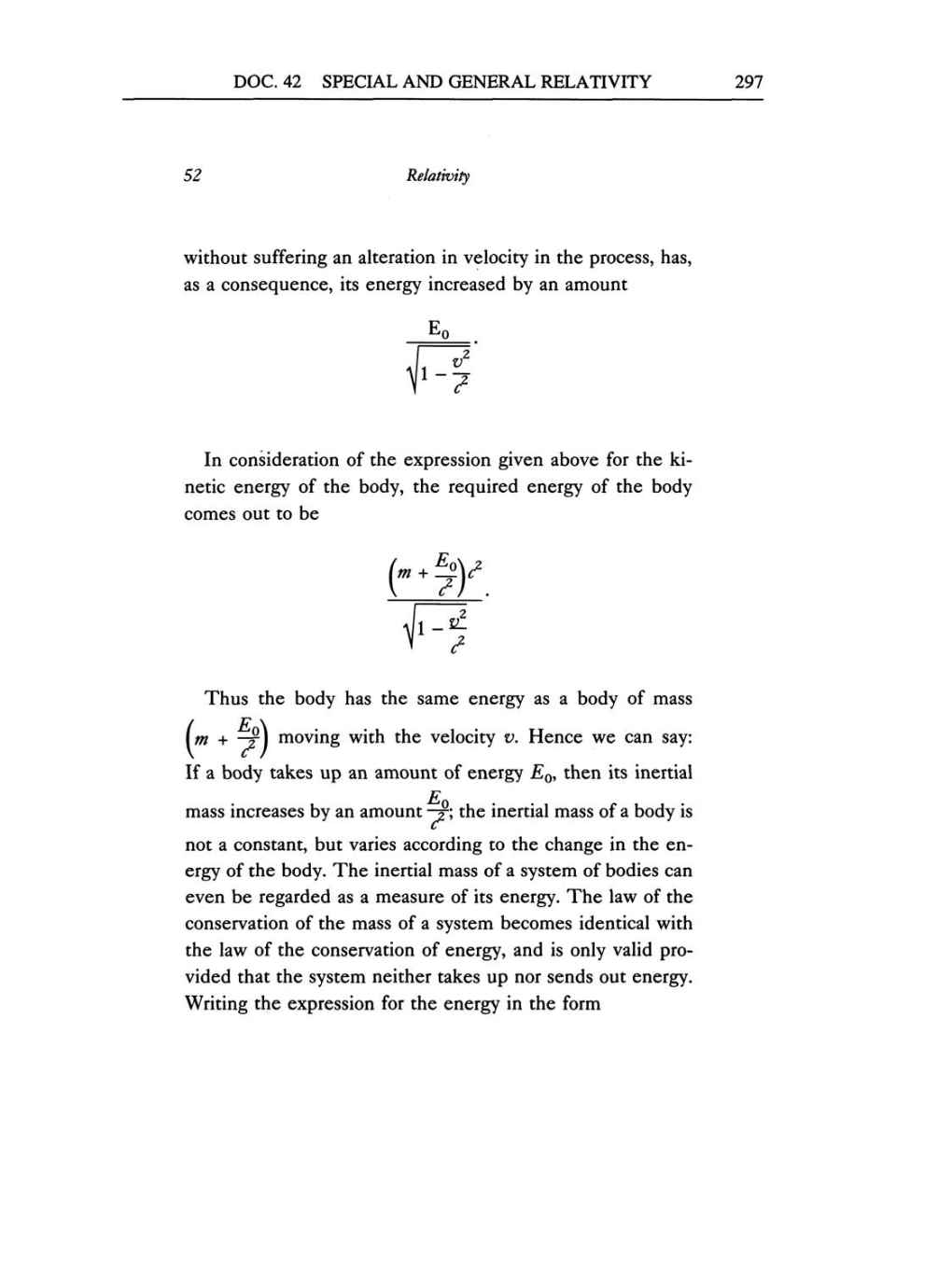DOC.
42
SPECIAL AND GENERAL RELATIVITY 297
52
Relativity
without
suffering an
alteration in
velocity
in the
process, has,
as a
consequence,
its
energy
increased
by an amount
E0
1-v2/c2
In consideration of the
expression given
above
for
the ki-
netic
energy
of the
body,
the
required energy
of the
body
comes out
to
be
(m+E0/c2)c2.
1-v2/c2
Thus
the
body
has
the
same
energy
as a
body
of
mass
(m+E0/c2)
moving
with the
velocity
v.
Hence
we can say:
If
a
body
takes
up an
amount
of
energy
E0,
then
its
inertial
mass
increases
by
an
amount
E0/c2;
the inertial
mass
of
a
body
is
not
a
constant,
but
varies
according to
the
change
in the
en-
ergy
of the
body.
The
inertial
mass
of
a
system
of bodies
can
even
be
regarded
as a
measure
of
its
energy.
The
law
of
the
conservation of the
mass
of
a
system
becomes identical with
the
law
of the conservation of
energy,
and
is
only
valid
pro-
vided that the
system
neither
takes
up
nor
sends
out energy.
Writing
the
expression
for
the
energy
in the
form
